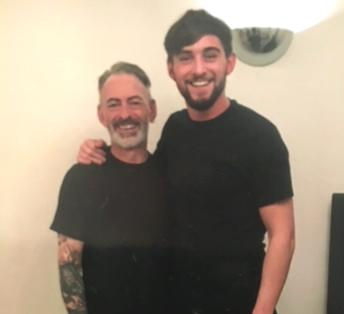Asbestos: the forgotten killer taking 5,000 lives a year
- Asbestos Hub
- Apr 23, 2023
- 2 min read
Updated: May 18, 2023

It’s like living on death row — except on death row at least you know when you’re going to die,” says Wayne Osborne, 59. “I go to bed every night wondering whether I’ll wake up the next morning.”
Last year Osborne was diagnosed with mesothelioma, an incurable form of cancer caused, almost exclusively, by breathing in asbestos fibres. “I was exposed in my late teens, when I had a job in Manchester replacing worn brake linings in HGVs,” he says. “They were made of asbestos. We were never told it could be dangerous. There was no proper ventilation and we weren’t supplied with any protective equipment, except occasionally masks that were no use at all. When you look back it seems criminal.”
Like the vast majority of people who develop mesothelioma, he showed no signs of illness for decades. Most sufferers eventually go to the doctor with mild symptoms such as a cough or shortness of breath — and then half of them are told they have less than a year to live. The average life expectancy after diagnosis is 18 months. A person could be feeling fine one week, go to their GP short of breath the next, be sent to hospital for an x-ray, which might reveal a shadow, then go for a CT scan and a biopsy — and be told that they will be dead in a few months. The impact on victims and their families is sudden and traumatic.
Osborne developed dramatic symptoms in September 2020 — not shortness of breath, in his case, but severe headaches. “I ended up in A&E and they did a scan and found a brain tumour,” he says. “The surgeon said if it wasn’t removed I’d be dead in two weeks. They took it out and did blood tests and biopsies to find out what had caused it, but it was almost two years before I was diagnosed with mesothelioma. The primary tumour had been in my lung, but then it spread to my brain, and since then it has gone to my liver and stomach.”

Once a fitness fanatic and martial arts competitor, Osborne had a fighting weight of 11st 7lb. After two years of chemo and immunotherapy he’s 4st lighter. “When they told me in June 2022 that I probably had six months to a year to live, I found it hard to believe,” he says. “I had no symptoms at the time, so going from that to being told you could be dead in six months is hard to take.”
Steve Boggan
Sunday April 23 2023, 12.33am, The Sunday Times
.png)